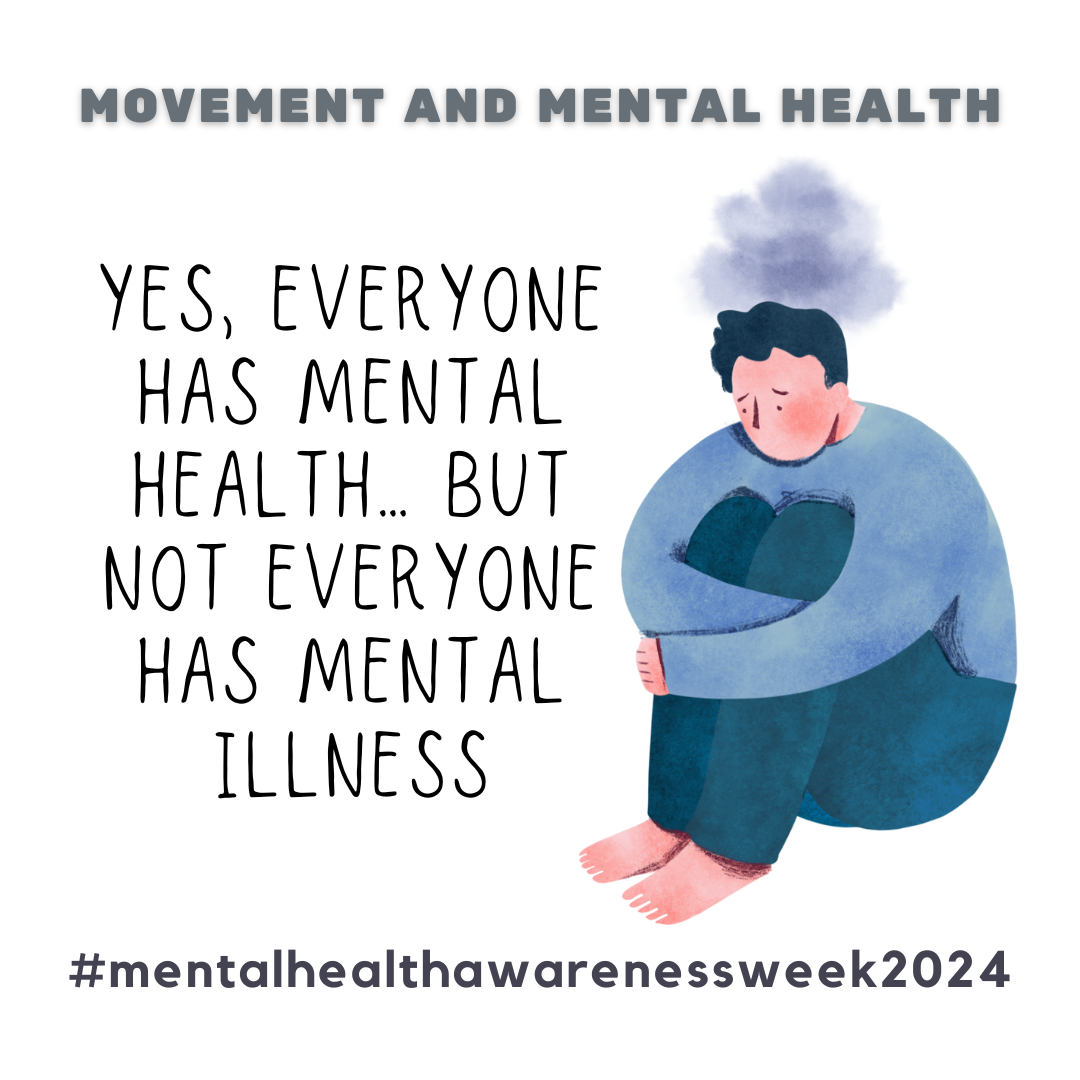A post from our Mind Waves Projects Manager, Marie.

This year’s theme of movement for Mental Health Awareness Week has a focus on how people can move their bodies more for wellbeing. The hashtag “Moments of Movement” encourages people to use small pockets of time to move more. Over the years on this blog we have shared lots of stories from our volunteers about the often transformative benefits of movement and exercise. This week has been a fantastic opportunity to re-share some of their experiences!
However, similar to many support organisations and campaigners, I can’t help but think perhaps that we should use this window of opportunity to focus on moving the conversation around mental illness, as well as moving our bodies. We often hear it said that “everyone has mental health”. Yes, everyone has mental health. However, not everyone has mental illness. Why are we comfortable talking about mental health (which of course we absolutely should!), but not mental illness? Sometimes the term mental health is used as a catch all, even to refer to severe mental health conditions. There is still a huge amount of stigma and misunderstanding around mental illnesses such as Bipolar Disorder, Borderline Personality Disorder, Eating Disorders and many more. Symptoms such as psychosis and self harmful behaviours are still seen as taboo in our society.
This week’s focus on the benefits of individual behaviours can also be seen as glossing over the structural inequalities that most significantly impact on our mental health as a population. In a climate of funding cuts, cost of living crisis, more people in poverty, long NHS waiting times (including for diagnosis), cuts to local resources and community facilities, shouldn’t we be focussing on the root cause of health issues, whether physical or mental? No amount of movement can combat the effects of poverty, social exclusion or lack of support services. It is also important to recognise that access to exercise and physical activity is not equally possible for, or available to, everyone which again is a result of inequality.
One thing is certain: People are definitely more likely to build movement into our daily lives in the context of a connected and care focussed society in which our rights, needs and human dignity are sufficiently met.


No comments yet.